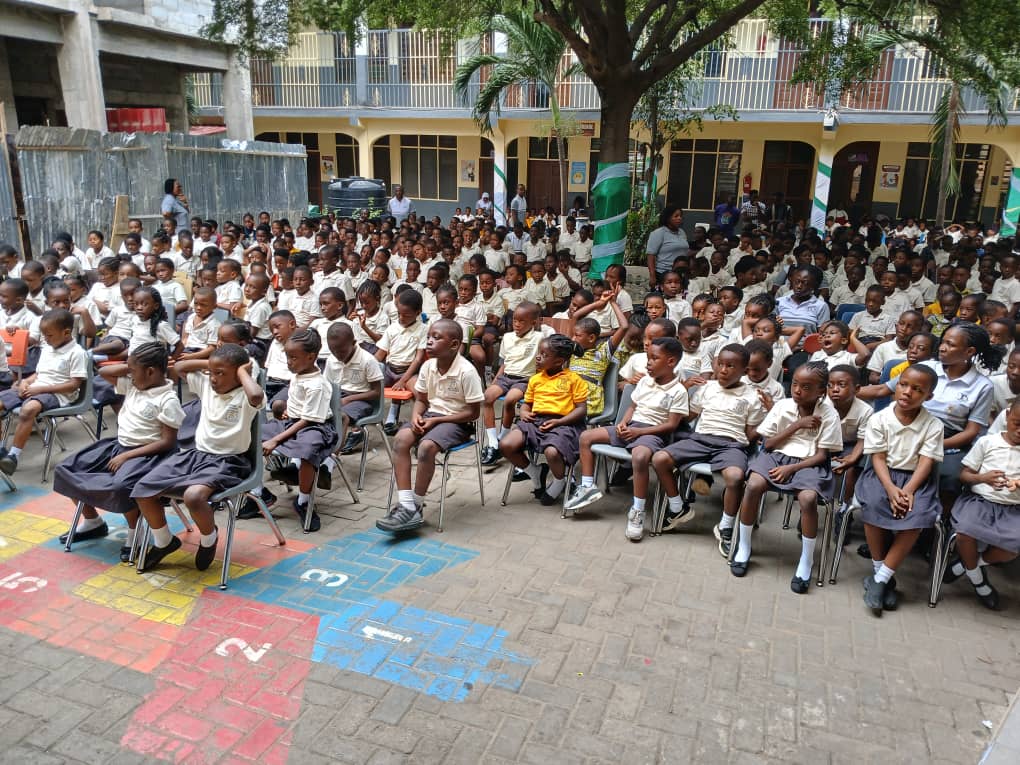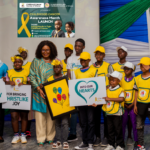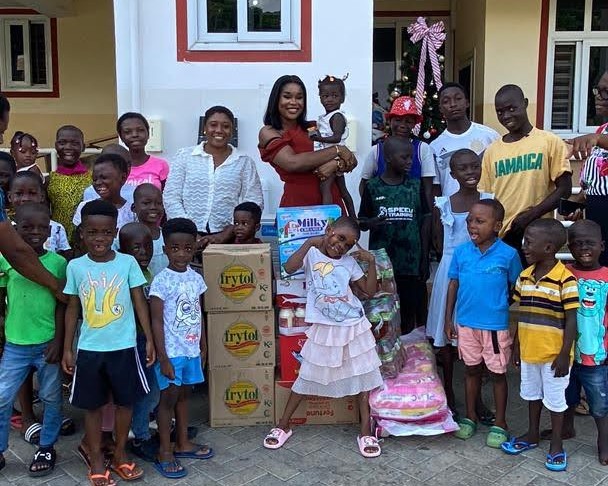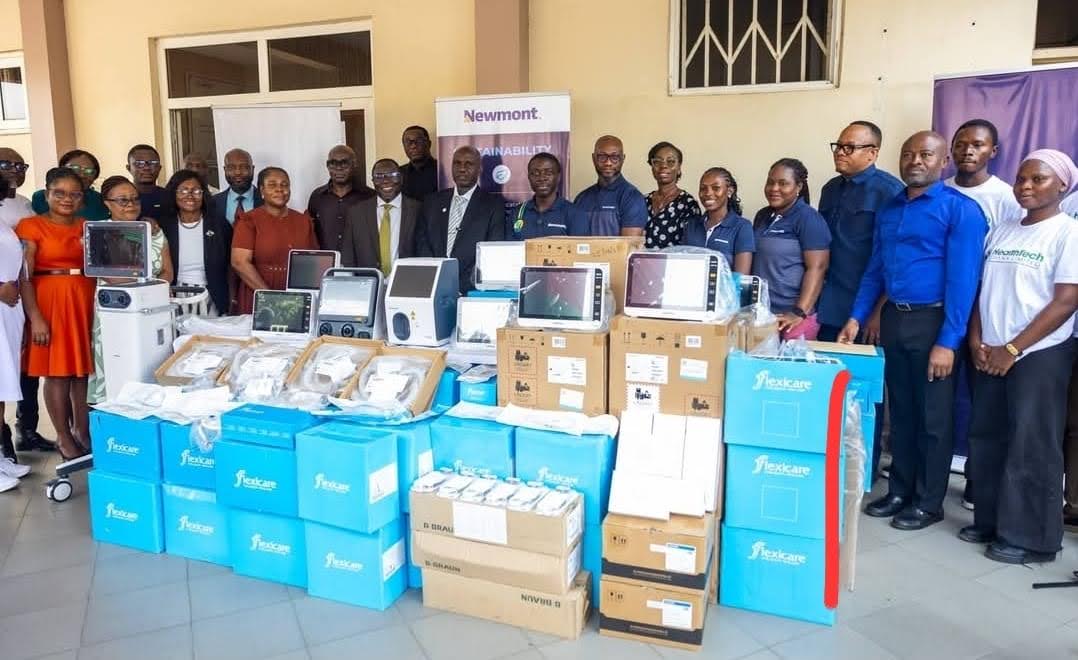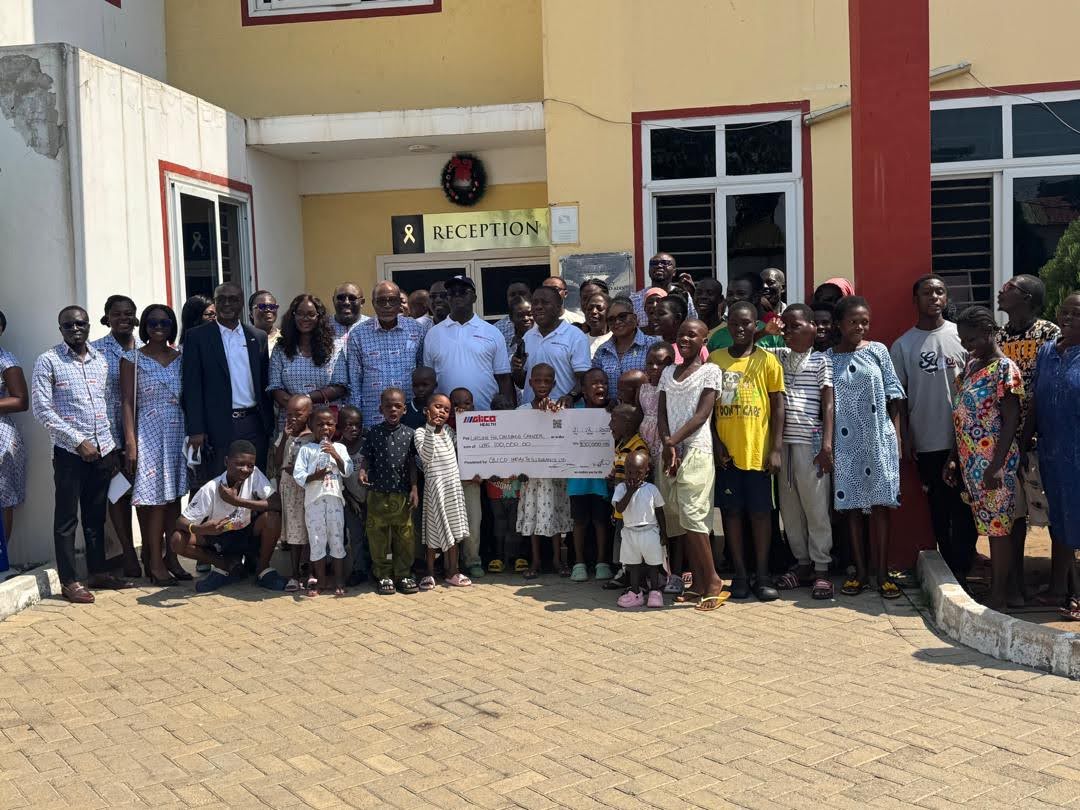September was a month filled with impactful events as we joined the global community in observing Childhood Cancer Awareness Month. One of the standout moments was our engaging and educational awareness session at Perpetual Help School in Lapaz, Accra, where we had the privilege of informing and empowering students about childhood cancers.
The session was a lively and interactive blend of fun and learning. Our team, alongside a senior oncologist nurse specialist, shared essential information on the signs and symptoms of childhood cancers, the importance of early detection, and ways students can support their peers who might be going through these difficult experiences. We focused on breaking down barriers and addressing the stigma surrounding childhood cancer, fostering understanding and empathy among the students.
The students were incredibly engaged, asking thoughtful questions and eagerly participating in activities designed to reinforce their learning. From understanding how to spot potential warning signs to learning how to offer emotional support, the session provided them with valuable tools to be compassionate allies to children affected by cancer.
Why is this important? Educating young people about childhood cancer is crucial. It not only helps to dispel myths and reduce stigma but also empowers students to be supportive and understanding friends to those in need. It fosters a community that is both informed and compassionate—ready to advocate for children affected by cancer and to spread awareness among their families and peers.
We believe that awareness is the first step toward meaningful change, and the enthusiasm and curiosity we saw at Perpetual Help School gives us hope for a brighter, more empathetic future. The seeds of awareness we planted will surely grow, creating a community that stands with children and families battling childhood cancer.
We extend our heartfelt thanks for your continued support in our mission to raise awareness and make a difference. Together, we can create a future where every child is supported, understood, and given the care they need.
